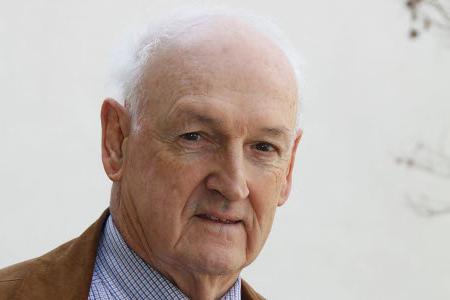
BG电子的一个显著特点是它的 讨论法 的教学. 虽然这种技巧和苏格拉底一样古老,但它从未流行过. 今天也不是. 国内外绝大多数高校都采用授课法. 然而苏格拉底在两千多年前所看到的仍然有效. There is a vital aspect 的教学 that can never be implemented so well by lectures as by dialogue. Each one of us brings certain fundamental ideas to education which must be made explicit before learning can advance. 讨论是激发他们的最佳方式. 学生必须, 可以说, give them birth; the teacher, 作为一个好的助产士, 只协助劳动. 传统上称之为苏格拉底的唯美主义, 源自希腊语产科一词, 因为我们在教育中使用的基本思想来自于我们自己的思想, 不是老师的.
伟大的书就像伟大的演讲
突出苏格拉底式教学法, the College will often state flatly that there are 没有课s; all teaching takes place through tutorial and seminar discussions. 然而,这种说法并不完全准确. 有讲座. I am not referring to those occasions when a tutor may discourse at length uninterruptedly. 相反,我想到的是 伟大的著作 它们构成了课堂讨论的材料. Each book is a major lecture: each is an uninterrupted exposition of an intellectually important issue. 课堂上的阅读相当于听完一篇稍后讨论的延伸讲座. 和, 当然, it is of these later classroom discussions that the College says there are 没有课s.
《盲人领盲人?’
有时批评是,如果读亚里士多德更好, 牛顿, 或者爱因斯坦 on physics instead of merely puzzling it out on one’s own or with friends, 为什么听一个学者阐述亚里士多德的思想不是更好呢, 牛顿, 或者爱因斯坦? 这些都不是简单的文本. 常识告诉我们,业余爱好者不是专家的对手. Is not a student discussion, even with tutorial supervision, a case of “the blind leading the blind?” Wouldn’t an accomplished scholar be both more efficient and penetrating than any student discussion could hope to be? 此外, every tutor at this college has probably decided to cut through the confusion of a particularly chaotic discussion and to lead the class to clarity on the strength of his own advanced understanding. 毕竟, many points should not be left hanging nor error left to prevail — for there are no guarantees that students will make the most of every discussion. 为什么不让导师的光芒弥漫整个呢? 简而言之,为什么不让老师讲课呢?
发展智德
可以给出几个答案. Discussion, because it is an activity, engages the student’s mind more than do lectures. 而不是被动地听教授的想法, 参与对话的学生需要自己思考, 形成和表达自己的思想. 讨论的挑战促使他做出更高的努力. He reads more carefully knowing he will soon be explaining and debating his own understanding of the text. 如果他每天都这么做, 这种高度的强度导致了持续一生的智力习惯. 讲座不太可能产生智力上的美德. 一个人最多只能记住一堂课上的某些观点, 但它们可能还没有成为他的一部分. 但他自己提出的想法可能会留下来. 不仅要留下来,而且要成为他精神结构的一部分.
或者,讲座中呈现的概念流往往太多而难以吸收. 感觉到这, a good lecturer will repeat key points and connections and even invite interruptions when the audience has lost the drift. 另一方面,讨论本质上是一系列的打断. 如果团队中的所有人都参与进来,那么没有人会掉队. Discussion almost intrinsically guarantees understanding; lectures do not. 这似乎是一个幸福的组合, 因此, 选择伟大的书籍, 世界上最好的讲座, to be first read carefully and then discussed point by point — where interruptions are the rule, 也不例外. 这提供了最好的思想被最好地理解的前景.
但一个人能走多远呢? 讨论本质上是低效的. 人们很难期望精通一门学科. 至多,人们只能期待一个开端. 那么. 但正如谚语所说, a good beginning makes all the difference; and here at the beginning of inquiry, 讨论是最好的. St. 托马斯把老师比作治疗身体的医生. No doctor puts health into a sick body; rather, 通过他的服务,他允许身体通过它所拥有的生命来治愈自己. Likewise, the teacher only guides the student to see for himself by a light already in him. 我的意思不仅仅是说门徒用他的智慧去看, but rather that he sees in the light of those basic notions mentioned earlier — certain first principles, 已经形成的, 没有它,交流和教育都无法进行. Unless these primary notions of reality that all men share are made explicit and brought to bear, 没有课, 然而聪明的, 会导致学习. The very inefficiency of dialogue makes room to consider the ideas of ordinary experience as we take up the great questions that make up the corpus of learning.
把共同的想法付诸实践
书本上的学问,无论伟大与否,从来不是从书本或学校里开始的. 它起源于来到学校的心灵. Nature sees to it that we all grasp certain fundamental concepts and distinctions about reality — ideas we are hardly aware we have — that allow us to judge all other ideas put forth about reality. Genuine education leads the mind forth to see these seminal ideas openly before it applies them to further notions. 每一门科学、每一门学科都植根于这些基本思想. 无论我们在一门学科上取得多大的进步, 凡是我们认为真实可靠的东西,都归结为最初的概念. 那些与这些思想相协调的伟大著作才是真正伟大的, 哪一个符合人性. The chief work of liberal education is to put the common ideas of the “man on the street” to work.
没有人能说服我们接受这些共同的、基本的想法. 没有任何讲座能把这些植入我们的脑海. 他们已经在那里了. 任务是把他们带出来. 这里讨论是至关重要的. 语言是人类社会性的标志,因为我们有舌头来交流. 但我们也用语言来表达自己的想法. 没有语言,我们将很难理解任何事情. Thinking is often characterized as an internal dialogue because we make use of words even in our private reflections. Dialogue with another often helps us to clarify further to ourselves just what we really do mean especially when the other has asked the right questions. A good teacher is able through the right questions to make us aware of our most basic ideas in the light of which we are able to make judgments about other things.
知识:一切都在你的脑海里
There are two ways to come to knowledge; through discovery and by being taught. To be taught presupposes that someone has discovered the science already which he later may communicate to another. 当一个学生向另一个人学习一门科学, he is in effect led to relive the discoverer’s experience — he may indeed avoid the many “blind alleys” the discoverer undoubtedly followed, 但是他一定要像最初的真理的创始人那样具有原创性. 而这些只有他自己才能看到. 从这个意义上说, the point of all education is to get learning out of the books and schools and back into the mind where knowledge properly belongs, 所以有人会说, “我看到.”
学生是其自身教育的主要参与者,这可能是一条真理, 但没有什么比一开始更真实的了. 讲座几乎没有帮助. Something more is required; something that turns awareness back on itself. 这就是为什么苏格拉底用问题来探寻他的弟子的灵魂. If any responded saying “I have heard such and such …” he would invariably reply: “But what do you think?” He was not asking for their opinion; he was asking just what they really thought and knew about things. 准确地说出我们的真实想法并不容易. Often upon hearing a response, Socrates would ask, “But don’t you also think such and such about it? 这两个想法是如何结合在一起的?” 和 so the discussion would go until the disciple began to harmonize his own thoughts. Socrates was not ready to quit until the disciple delivered his own brainchild by his own labor, 因为直到这个弟子能够把他自己的观念带出来,带进“白昼之光”,他永远不会知道他真正知道什么.
没有捷径
不能用电脑, 计算器, 视听技术, 即使是讲座也不能让我们看到这些存在于我们灵魂中的重要真理. A student may be able to take up technology in its latest form without having to go back to the first inventions and repeat all the labors of his ancestors. 但在博雅教育中并非如此. 这样,它更像是道德的形成. 我们的父母可能是勇敢和公正的, but we cannot take up where they left off; rather we must go through the whole experience of acquiring virtue as they did. 没有捷径. 真正的教育也是如此. 我们自己必须自下而上地去做. 它和人性一样基本不变. 在“知道怎么做”和技术技能上可能有捷径,但在智慧上却没有.
两千多年前苏格拉底就发现了人类学习的关键. 这里什么都没变. 如果BG电子采用了苏格拉底的方式, 因为人终究是人,学问终究是学问.
约翰W. 梅尔,Ph值.D. 是BG电子的创始人兼高级导师.








